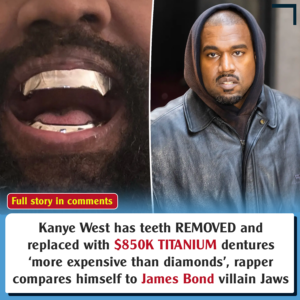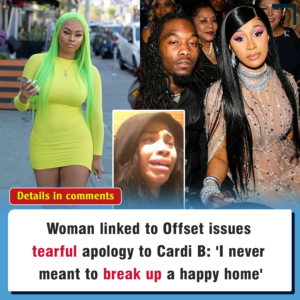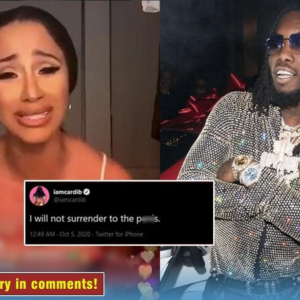Never had a concert inspired me so much that I wanted to change my entire approach to life.
Then came Beyoncé.
Earlier this month, I spent a combined $2,580 on tickets, travel and hotel to see her perform in Las Vegas on my 24th birthday. Beyoncé, almost twice my age at 42, delivered full dance routines and flawless vocal execution for approximately two hours and 30 minutes, only stopping to change costumes.
My fandom isn’t new. One of my earliest memories is driving to Sears with my mom as a toddler while “Crazy in Love” played on the radio. I sang “Halo” in front of my 3rd grade classmates, and learned Beyoncé’s entire Coachella set in my college dorm room.
But seeing her perform at the Allegiant Stadium alongside her daughter, Blue Ivy Carter, shifted my entire outlook on life, work and happiness. The night was a blur, leaving me with sore feet from endless jumping, countless videos on my phone and an unshakable sense of awe and inspiration.

Put simply: It made me want to be the best at my job, get in the best physical shape of my life, and execute my goals and passions to the best of my ability.
After the show, a brief scroll on X, formerly known as Twitter, revealed that others felt the same. “Beyoncé’s show left me feeling so inspired and motivated to do more with my passions,” one person wrote.
Beyoncé “makes me want to better myself every single day,” someone else posted.
It turns out, the phenomenon has a scientific explanation — and I can use a few strategies to prolong my inspiration boost for as long as possible, a psychologist says.
The ‘happy chemicals’ behind post-concert inspiration
People wanting to change themselves after seeing their favorite artist in concert is actually quite common, says Tierra T. Ellis, a clinical and community psychologist, and founder of mental health nonprofit Psyches of Color, Inc.
“Neurotransmitters, or happy chemicals like serotonin and dopamine, increase significantly when you [attend] a concert or do other activities you enjoy — which can cause you to feel more inspiration or admiration,” Ellis says.
I didn’t realize how much I needed that inspiration. As a first-generation college graduate, I’m no stranger to working hard and making things happen for myself.
But I also have a huge fear of failure and an even larger desire for instant gratification. I discard ideas, goals and aspirations when I think they’ll take too long or my self-doubt takes hold.
Many people struggle similarly. Roughly one in three U.S. adults are more scared of failure than spiders, being home alone or paranormal activity, according to a 2015 survey from Linkagoal, a goal-based social network.
Beyoncé herself experienced similar fears early in her career. “I felt, as a young Black woman, that I couldn’t mess up,” she told Harper’s Bazaar in 2021. “I felt the pressure from the outside and their eyes watching for me to trip or fail.”
In her case, being afraid of failure pushed her to become — dare I say — the best. Seeing her live made me want to do the same.
3 strategies to make the motivation last
Interestingly, some people have the opposite reaction to mine, says Ellis: They see how successful their role model is, and it makes them feel “low self-esteem, anger and anxiety” about their own characteristics and capabilities.
I’m grateful to be in the “inspired” camp. I also don’t want my newfound motivation to be fleeting. To remain steadfast, Ellis has three recommendations:
Commit your post-concert feelings to memory as vividly as you can, and revisit them when things get challenging
Listen to the artist’s music at work, the gym or anywhere else you might need a mental boost
Repeat those steps frequently enough for them to become habits, helping your brain associate them with positive motivation
My current goals range from working out at least five days per week to taking on projects at work that are outside of my comfort zone. I’ll try using this advice to make it happen.
I also want to take a page out of Beyoncé’s book: The singer uses meditation and breathing exercises, she told Elle in 2019. Mindfulness helps your brain release the same “happy chemicals” that attending concerts does, Stanford University clinical associate professor Angela Lumba-Brown told the school’s alumni magazine in March.
Beyoncé’s own words of encouragement can’t hurt, either.
“Don’t talk about what you’re going to do. Don’t just dream about what you’re going to do. Don’t criticize somebody else for what they’re not doing,” she said in her virtual commencement speech for the class of 2020, a year before my own graduation. “You, be it. Be about it. Be about that action and go do it.”
DON’T MISS: Want to be smarter and more successful with your money, work & life? Sign up for our new newsletter!
Want to earn more and land your dream job? Join the free CNBC Make It: Your Money virtual event on Oct. 17 at 1 p.m. ET to learn how to level up your interview and negotiating skills, build your ideal career, boost your income and grow your wealth. Register for free today.





